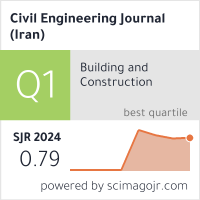Motivational Factors for the Implementation of ISO-9001 in Construction Firms of Pakistan
Downloads
Motivating public and private construction firms to implement various management systems in their firms is not a simple job. Especially in Pakistan, management system is a new practice, most of the construction firms are not aware about the benefits of management system and what will be achieved after the implementation of management system. The implementation of ISO 9001 Quality Management System (QMS) in the construction industry is a continuing development method, particularly in small construction firms. On the other hand, the awareness level and readiness level of construction industry firms in Pakistan is yet very low as associated to other countries of Asia and Europe where ISO 9001 initiated. The purpose current study is to determine most responsible factors which will motivate the public and private construction firms of Pakistan to adopt the QMS (ISO 9001). A questionnaire survey was conducted and a total of 337 out of 553 questionnaires were received from public and private construction firms of AZBAGIKHPUSI areas. The analysis results depict 3 significant factors, which will motivate construction firms of Pakistan to implement ISO 9001 are (1) to qualify for bidding (2) to improve quality management system of company (3) to reduce wastage. Hence, based on these results and findings, the construction companies require ISO 9001 certification system and registration with Pakistan Engineering Council (PEC) as a constitution passed for the construction firms then to qualify for the bidding.
Downloads
[2] Said, I., Ayub, A. R., Razaki, A. A., & Kooi, T. K., "Factors affecting construction organization quality management system in the Malaysian construction industry”,. University Sains Malaysia, 2009.
[3] Juran, J., & Godfrey, A. B., Quality Handbook. Republished McGraw-Hill, 173-178, 1999.
[4] Al-Ani, R., & Al-Adhmawi, F. I., "Implementation of Quality Management Concepts in Managing Engineering Project Site”, Jordan Journal of Civil Engineering, 5(1), pp. 89-16, 2011.
[5] Al-Ani, Raji, and Firas I. Al-Adhmawi. "Implementation of Quality Management Concepts in Managing Engineering Project Site." Jordan Journal of Civil Engineering 5.1 (2011): 89-16.
[6] Kumar, D. A., & Balakrishnan, V., "A study on ISO 9001 quality management system certifications–reasons behind the failure of ISO certified organizations”, Asian Journal of Management, 2(4), pp. 191-196, 2011.
[7] Durai Anand Kumar, Dr V. Balakrishnan. "A study on ISO 9001 Quality Management System Certifications "Reasons behind the failure of ISO certified Organizations." Global Journal of Management and Business Research 11.9 (2011).
[8] Farooqui, R. U., & Ahmed, S. M., "ISO 9000: A Stepping Stone to Total Quality Management for Construction Companies?”, In Proceedings of the Seventh Latin American and Caribbean Conference for Engineering and Technology (pp. 1-9), June-2009.
[9] Farooqui, R., & Ahmed, S., "Assessment of Pakistani construction industry–current performance and the way forward”, Journal for the Advancement of Performance Information & Value, 1(1), pp. 51-72, 2008.
[10] Jonathan, I. O., Sunday, O. T., Ayobami, A. J., & Iruobe, T., "An investigation into the impact of total quality management application in the construction industry (a case of training)”, Journal of Emerging Trends in Economics and Management Sciences, 3(1), pp. 46-50, 2012.
[11] Carlsson, M., & Carlsson, D., "Experiences of implementing ISO 9000 in Swedish industry”, International Journal of Quality & Reliability Management, 13(7), pp. 36-47, 1996. https://doi.org/10.1108/02656719610128547.
[12] Stephens, B., "Implementation of ISO 9000 or Ford's Q1 Award: effects on organizational knowledge and application of TQM principles and quality tools”, The TQM Magazine, 9(3), pp. 190-200, 1997. https://doi.org/10.1108/09544789710168975.
[13] Jones, R., Arndt, G., & Kustin, R., "ISO 9000 among Australian companies: impact of time and reasons for seeking certification on perceptions of benefits received”, International Journal of Quality & Reliability Management, 14(7), pp. 650-660, 1997. https://doi.org/10.1108/02656719710173258.
[14] Bhuiyan, N., & Alam, N., "An investigation into issues related to the latest version of ISO 9000”, Total quality management and business excellence, 16(2), pp. 199-213, 2005. https://doi.org/10.1080/14783360500054343.
[15] Brown, A., Van Der Wiele, T., & Loughton, K., "Smaller enterprises' experiences with ISO 9000”, International journal of quality & reliability management, 15(3), pp. 273-285, 1998. https://doi.org/10.1108/02656719810198935.
[16] Heras-Saizarbitoria, I., Marimon, F., & Casadesús, M., "An empirical study of the relationships within the categories of the EFQM model”, Total Quality Management & Business Excellence, 23(5-6), pp. 523-540, 2012. https://doi.org/10.1080/14783363.2012.669541.
[17] Tarí, J. J., Molina-Azorín, J. F., & Heras, I., "Benefits of the ISO 9001 and ISO 14001 standards: A literature review”, Journal of Industrial Engineering and Management, 5(2), pp. 297-322, 2012. https://doi.org/10.3926/jiem.488.
[18] Georgiev, S., & Georgiev, E., "Motivational factors for the adoption of ISO 9001 standards in Eastern Europe: the case of Bulgaria”, Journal of Industrial Engineering and Management, 8(3), pp. 1020-1050, 2015. https://doi.org/10.3926/jiem.1355.
[19] Noi, S. N. A., Total Quality Management Implementation in the Ghanaian Construction Industry (Doctoral dissertation), 2017.
[20] Juanzon, J. B. P., & Muhi, M. M., "Significant factors to motivate small and medium enterprise (SME) construction firms in the Philippines to implement ISO 9001: 2008”, Procedia Engineering, 171, pp. 354-361, 2017. https://doi.org/10.1016/j.proeng.2017.01.344.
[21] Giles, R., "ISO 9000 perspective for the construction industry in the UK”, Training for Quality, 5(4), pp. 178-181, 1997. https://doi.org/10.1080/014461999371871.
[22] Bani Ismail, L., "An evaluation of the implementation of Total Quality Management (TQM) within the construction sector in the United Kingdom and Jordan”, Doctoral dissertation, University of Huddersfield, 2012.
[23] Mane, P. P., & Patil, J. R., "Quality Management System at Construction Project: A Questionnaire Survey”, Int. Journal of Engineering Research and Applications, 5(3), 126-130, 2015.
[24] Georgiev, S., & Georgiev, E. "Motivational factors for the adoption of ISO 9001 standards in Eastern Europe: the case of Bulgaria”, Journal of Industrial Engineering and Management, 8(3), 1020-1050, 2015. http://dx.doi.org/10.3926/jiem.1355.
[25] del Castillo-Peces, C., Mercado-Idoeta, C., Prado-Roman, M., & del Castillo-Feito, C., "The influence of motivations and other factors on the results of implementing ISO 9001 standards”, European Research on Management and Business Economics, 24(1), 33-41, 2018. https://doi.org/10.1016/j.iedeen.2017.02.002.
[26] Manders, B., de Vries, H. J., & Blind, K., "ISO 9001 and product innovation: A literature review and research framework”, Technovation, 48, 41-55, 2016. https://doi.org/10.1016/j.technovation.2015.11.004.
[27] Mitreva, E., Filiposki, O., Taskov, N., Krivokapić, Z., & Jovanovic, J., "Motivation: A significant factor for quality assurance in Macedonian companies”, International Society for Development and Sustainability (ISDS), 6(9), 1170-1183, 2017.
- Authors retain all copyrights. It is noticeable that authors will not be forced to sign any copyright transfer agreements.
- This work (including HTML and PDF Files) is licensed under a Creative Commons Attribution 4.0 International License.![]()















